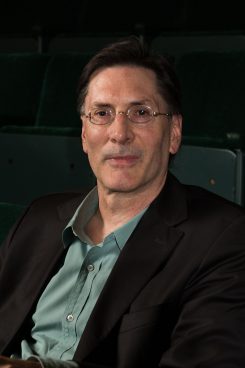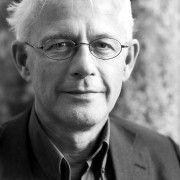Blog
(Not) the real thing
On December 20th, I gave a little invited talk to the members of the Descartes Centre for the History and Philosophy of the Sciences and the Humanities. Why have the social sciences become so negligent of their historical and philosophical roots?
I have been working at the Faculty of Social and Behavioral Sciences of this university since 1984. Between then and now I have witnessed the withering of chairs, study groups and courses on the history and philosophy of the human sciences.
This did not only happen at Utrecht University. The growing lack of interest in history and philosophy among sociologists and psychologists is a worldwide phenomenon.
Why is it that social scientists have done away with history and philosophy of their field? With history and philosophy in general? This is because H&Ph are not sciences. They are not the real thing. They are framed as a niche for those who lack the true scientific spirit and capacities. They are also framed as a pass-time, a hobby for retired scientists. H&Ph are only, but very marginally, acceptable as guide to the scientific method that has guaranteed today’s sublime research achievements.
Am I exaggerating? Unfortunately not.
In seeking to explain this development, I came across a paper by George Steinmetz, a Professor of Sociology in the Department of Sociology and the Department of Germanic Language and Literatures at the University of Michigan. He is also corresponding member of the Centre de Sociologie européenne in Paris.

The paper is on the relations between sociology and history in the United States. Steinmetz wonders why there is a such a lack of cooperation and even communication between the two disciplines. In his view ‘history and sociology are both concerned with human social practice in its capacity for willed or unintentional change, and also in its tendency to reproduce itself historically in ways that appear unhistorical.’ (2007, p.1)
To make a long story short: Steinmetz blames the sociologists for this state of affairs. Within American sociology, the prewar epistemological plurality has made way for the dominance of methodological positivism, a mongrel of various brands of positivism (including falsificationism) that is stripped of any philosophical sophistication. One of its main tenets is the belief that the methods of the human and the natural sciences should be identical, i.e. quantitative and experimental. The objects and practices studied by sociologists (and social scientists in general) are to be treated as brute material facts that are subject to ‘invariable natural laws’, i.e. independent of time and place. Positivist sociologists combine their ‘science envy’ with disdain toward the more humanistic and historical disciplines.
For this state of affairs Steinmetz coined the term ‘epistemological unconscious’. This means that methodological positivism has become a general measure for scientific capital, recognized by all members of the disciplinary field, even if they do not adopt or appreciate it. As Steinmetz puts it in another paper: ‘The dominated sectors [within a discipline] developed “a feel for the game” and “a sense of their place”.’ (2005, p. 114) This is why sociologists who work with anthropological methods (observation, interviews) have started to call their field notes ‘data’, and increasingly publish journal articles instead of books.
Why? Because it helps them to more scientific capital – and by this to more investment money for their research. But doing well financially by emulating the natural sciences is not enough. Making the human sciences matter is of course the real mission (see Flyvbjerg, 2001).
Steinmetz argues: ‘Paradoxically, the more presentist discipline of sociology is less closely attuned to ongoing contemporary events and crises. The positivist prejudice that still prevails among many sociologists according to which only repeated events lend themselves to “scientific” treatment, places out of analytic bounds all of the structure-transforming events that are the bread and butter of historical analyses. […] Thus while historians have been intensely engaged in discussions about U.S. empire during the last four or five years, US sociology journals have barely registered this sweeping global transformation and society-wide discussions.’ (2007, p.7)
The concept of the epistemological unconscious might also help to explain why it is so hard to reclaim lost territory for history and philosophy within the social sciences – and the directors of the Descartes Centre have done their best! But it appeared that even those who sympathize with a more reflexive approach shrink away from creating space for activities that do not resemble natural science research and thus are ‘unscientific’.
Creating a chair in the history and philosophy of the social sciences is regarded as unnecessary, unwanted and a waste of money. Teaching H&Ph has even been designated as dangerous: it might confuse the students, who already have difficulties enough in getting socialized in the proper ways of doing social science.
Yes, there is at Utrecht University one professor in the History and foundations of developmental psychology and education, but it is a temporary, personal chair. Moreover the chair is located safely outside of the social science faculty. This professor will not ‘confuse’ the students.
I sincerely hope the Descartes Centre will continue its mission to remind Utrecht University of the importance of H&Ph for all disciplines. I especially hope that the DC will be able to convince the authorities of the Faculty of Social and Behavioral Sciences that historical and philosophical reflection will enrich the students’ academic quality, and thereby add an enduring foundation to the scientific capital of the social sciences.
References
Flyvbjerg, B. (2001) Making Social Science Matter. Why Social Inquiry Fails and How It Can Succeed Again. Cambridge (UK): Cambridge University Press.
Steinmetz, G. (2005) The genealogy of a positivist haunting: comparing prewar and postwar U.S. sociology. Boundary 2 32:2, 109-135.
Steinmetz, G. (2007) The relations between sociology and history in the United States: the current state of affairs. Journal of Historical Sociology, 20, 1-2, 1-12.
 22 december 2016
22 december 2016
U moet ingelogd zijn om te reageren, gebruik het formulier aan de linkerkant om in te loggen met uw solis gegevens.


